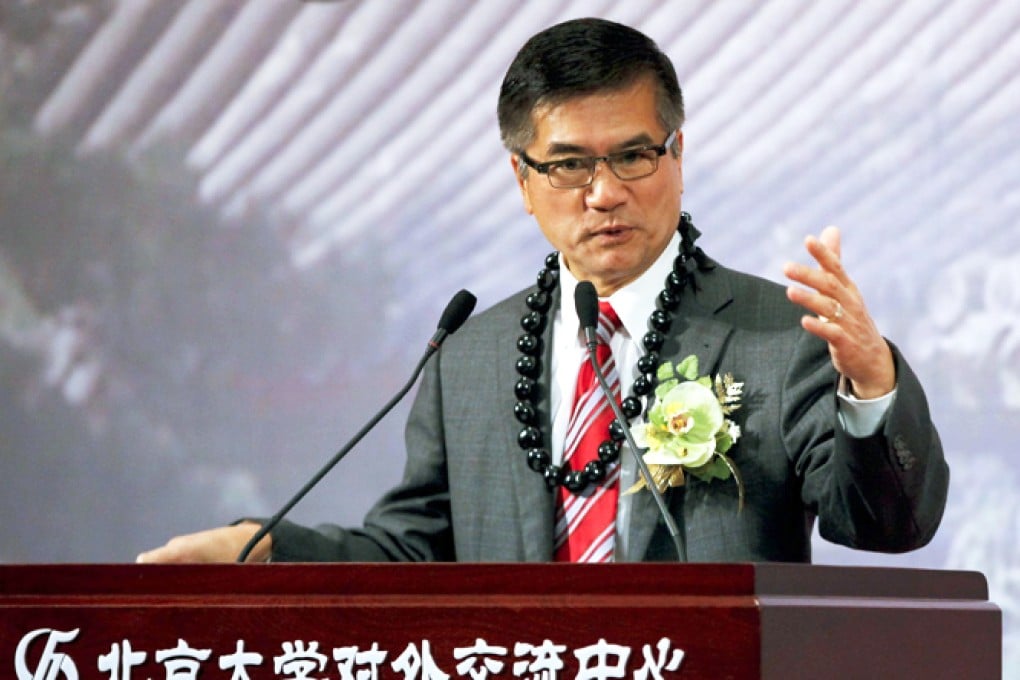Gary Locke receives kind parting words from old foe Global Times

The Global Times, China’s leading nationalist newspaper, has decided to part with US Ambassador Gary Locke on good terms after he announced his resignation from the job he held over two tumultuous years.
Hu’s paper has previously lashed out against the first Chinese-American US ambassador in Beijing after his relatively frugal lifestyle – he has been spotted flying economy class and using coupons to buy coffee – brought him widespread popularity among Chinese internet users, who compared his thriftiness with the privileges enjoyed by reclusive Chinese cadres.
As Locke prepares to leave China, the outspoken editor argues that Locke was an ambassador whose legacy should lead to reflection in China. “Much of his unusual gestures and controversial image may have arisen from our own sensitivity and expectations,” the Chinese-language version read. “We may have no reason to blame Locke.”